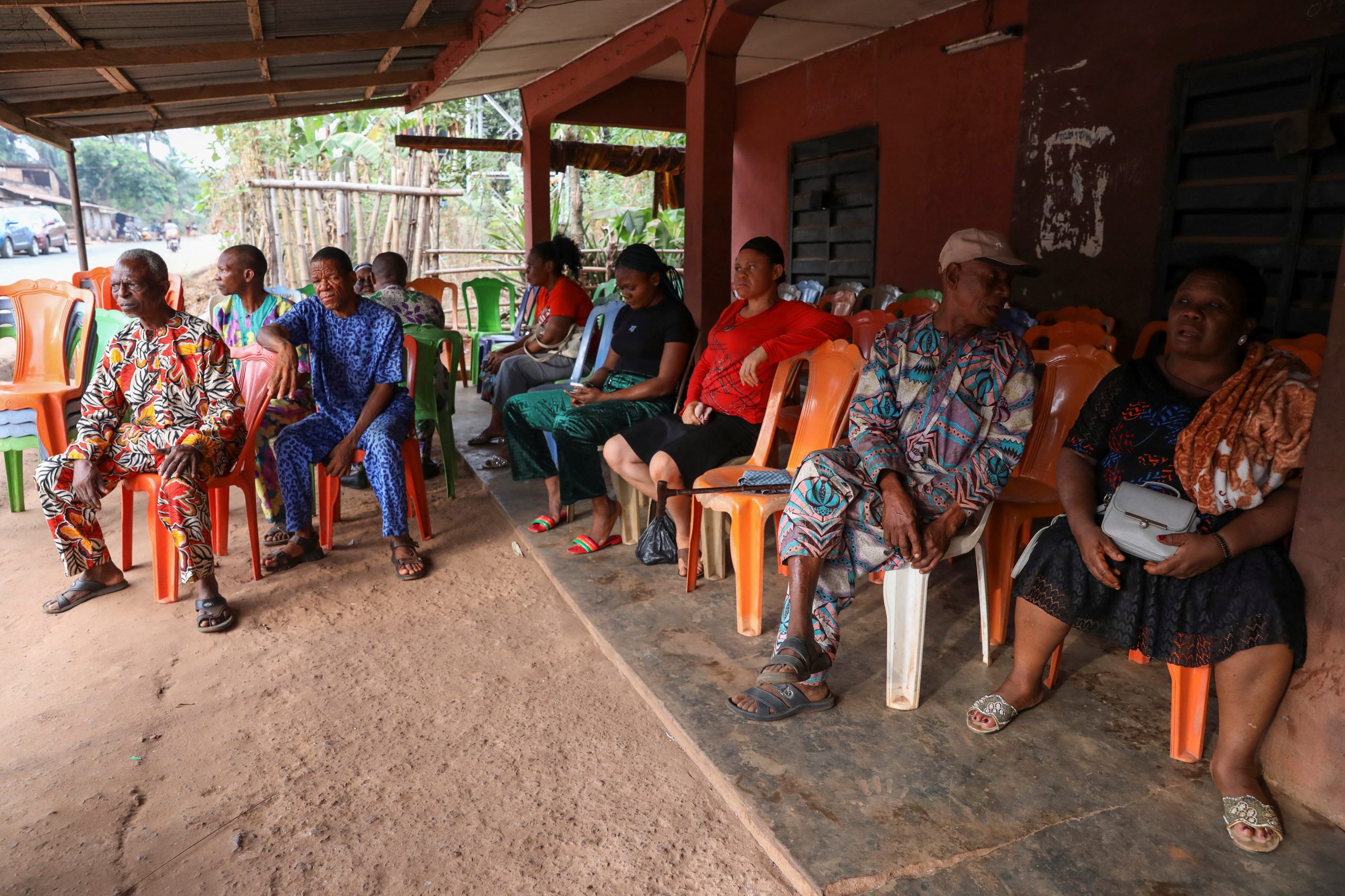
[elfsight_social_share_buttons id=”1″]
Nigeria’s presidential election was marked by long delays at some polling stations on Saturday that did not deter large crowds of voters hoping for a reset after years of worsening violence and hardship under outgoing President Muhammadu Buhari.
Africa’s most populous nation is struggling with Islamist insurgencies in the northeast, an epidemic of kidnappings for ransom, conflict between herders and farmers, shortages of cash, fuel and power, as well as deep-rooted corruption and poverty.
Reuters reporters at locations across the country saw a mixed election day picture, with some polling stations closing at the planned time of 2:30 p.m. (1330 GMT) while others had yet to open. Some suspended voting after running out of ballot papers.
“I will wait here to cast my vote. If I don’t vote how will things change?” said 23-year-old Halima Sherif, whose polling station in the northern city of Kano had not started operating by closing time.
Buhari, a retired army general, is stepping down after serving the maximum eight years allowed by the constitution but failing to deliver on his pledge to bring back order and security across Nigeria, Africa’s top oil-producing country.
The contest to succeed him is wide open, with candidates from two parties that have alternated in power since the end of army rule in 1999 facing an unusually strong challenge from a minor party candidate popular among young voters.
Independent National Electoral Commission (INEC) officials cited technical problems with a new biometric anti-fraud voter accreditation system, the late arrival of vehicles to transport them, and the absence of voter registers as causes of delays.
“It is frustrating that INEC are not prepared for us. All we want is just to vote,” said Sylvester Iwu, who was among a large crowd waiting at a polling station in Yenagoa, the capital of Bayelsa State in the southern oil-producing Niger Delta.
In a televised news briefing, INEC Chairman Mahmood Yakubu said six biometric machines had been stolen in northern Katsina State and two in southern Delta State. He also acknowledged the delays but said voters would be able to cast their ballots.
“The election will hold and no one will be disenfranchised,” he said.
INEC had said before election day that anyone who joined the queue on time would be able to vote even after the official closing time.
THREE-WAY RACE
With seats in the National Assembly also up for grabs, more than 93 million people were registered to vote at some 176,600 polling stations – which were supposed to be open from 8:30 a.m.
The final tally from the 36 states and federal capital Abuja is expected within five days of voting.
The run-up to the vote was marred by violence, with the killing of a senatorial candidate in the volatile southeast region on Wednesday the latest in a series of serious incidents.
There were reports of scattered incidents on Saturday, though not on the scale seen in previous elections.
In Lagos, a Reuters TV crew saw police arrest four men on suspicion of intimidating voters, while an election observer from a local civil society group said he had seen thugs armed with knives, chains and bottles smashing ballot boxes.
In most areas, however, the day appeared to be unfolding peacefully despite frustrations over the delays.
The main contenders to succeed Buhari are former Lagos governor Bola Tinubu, 70, of the ruling All Progressives Congress, former vice president Atiku Abubakar, 76, of the main opposition Peoples Democratic Party, and former Anambra State governor Peter Obi, 61, of the smaller Labour Party.
All three voted in their home states, surrounded by chaotic scrums of reporters and supporters.
“The electoral process cannot achieve 100% perfection,” Tinubu told reporters after voting. “People have to tolerate that. You’ve got to accept the results.”
Tinubu and Atiku, as he is known in Nigeria, are both political heavyweights with decades of networking behind them. Both Muslims, Tinubu is an ethnic Yoruba from the southwest and Atiku is a Fulani from the northeast.
Obi, a Christian from the Igbo ethnic group, has less of a political machine but has used a slick social media campaign to generate huge enthusiasm among young voters, with some even calling themselves the “Obidients”.
INEC says its new Bimodal Voter Accreditation System (BVAS) that identifies voters using biometric data would help avert fraud. Reuters reporters in some locations said officials were struggling to get the BVAS devices to work, while in others the system was functioning smoothly.
Despite INEC’s precautions, analysts have warned there are still risks that cash-strapped citizens could be vulnerable to vote-buying attempts by candidates.
Copyright 2023 Thomson/Reuters
